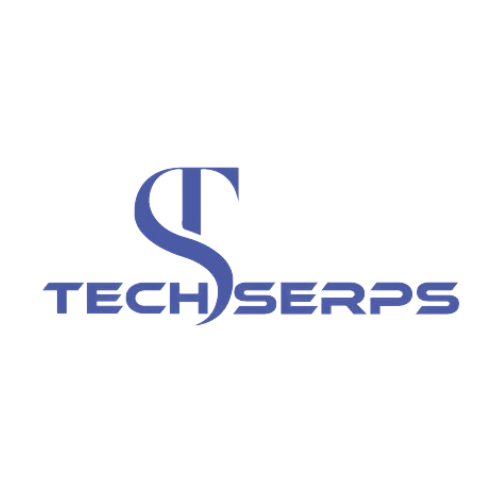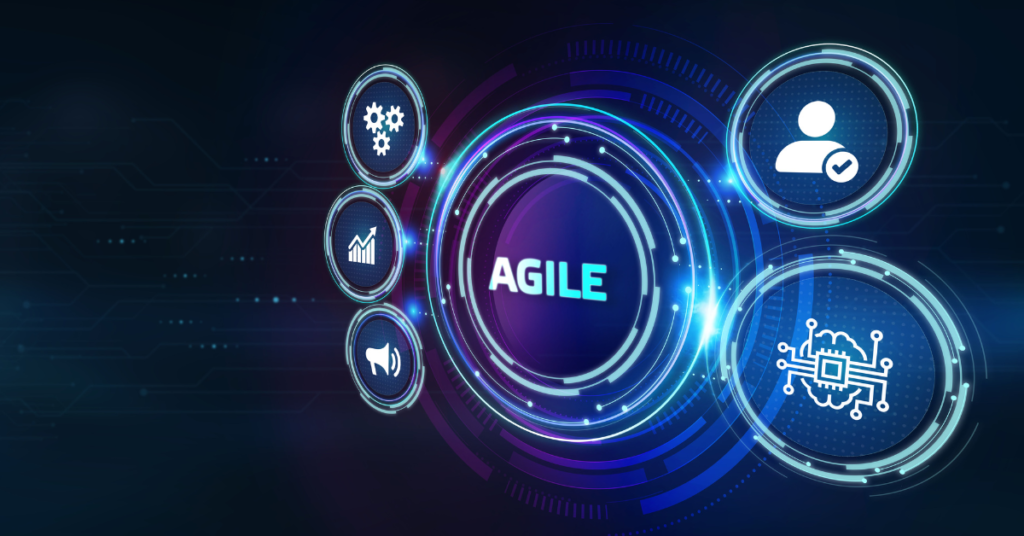Introduction
In the rapidly evolving digital landscape, businesses seek tools and strategies that can keep pace with their dynamic needs. Agile solutions have become a go-to framework, offering flexibility and speed. However, scaling these solutions can be a daunting task. Enter AI SEO tools, which combine automation, intelligence, and precision to streamline scaling agile solutions like never before. This article explores how these tools are revolutionizing the process and what it means for businesses aiming for scalable success.
What Are AI SEO Tools?
AI SEO tools are advanced software solutions powered by artificial intelligence designed to optimize search engine strategies. These tools analyze vast datasets, identify trends, and provide actionable insights to enhance SEO performance.
Key Features of AI SEO Tools
1. Real-Time Analytics
Real-time analytics is one of the most powerful features of AI SEO tools, offering immediate insights into website performance and user interactions. Unlike traditional analytics which provide data with a delay, real-time analytics allows businesses to see and respond to changes as they happen. This immediate access to data is crucial for agile teams who need to make quick decisions and adapt strategies in a fast-paced environment.
With real-time analytics, AI SEO tools can track and report various key metrics—such as visitor behavior, bounce rates, keyword rankings, and conversion rates—at the moment they occur. For example, if a specific keyword is suddenly driving a surge in traffic, the SEO team can act instantly to optimize the content and capitalize on the opportunity. Similarly, if an issue arises on the website, such as slow load times or broken links, the problem can be detected and resolved in real-time before it affects user experience or search rankings.
In the context of agile solutions, where flexibility and responsiveness are critical, real-time analytics enables businesses to remain nimble. By providing immediate feedback, these tools help agile teams continually improve SEO strategies without waiting for end-of-month reports. They can monitor how changes impact traffic, track the effectiveness of new content, and adjust approaches quickly to stay ahead of the competition.
Ultimately, real-time analytics from AI SEO tools empower businesses to optimize their SEO efforts with precision and speed, allowing for constant iteration and improvement—key elements of both SEO success and agile workflows.

2. Automated Keyword Optimization
Automated keyword optimization is a groundbreaking feature of AI SEO tools that significantly streamlines the process of improving search engine rankings. Traditionally, keyword research and optimization required manual efforts—analyzing competitors, identifying trends, and constantly adjusting strategies to align with changing search engine algorithms. However, AI-powered tools now automate this entire process, saving time and enhancing precision.
With automated keyword optimization, AI SEO tools can instantly identify the most relevant and high-performing keywords for your niche. These tools analyze vast amounts of data, including search volume, competition, and keyword relevance, to suggest the best keywords for your content. Additionally, they continuously monitor keyword performance and automatically adjust recommendations based on shifts in user behavior or search trends.
For businesses scaling agile solutions, this level of automation is a game-changer. Instead of spending valuable time manually researching keywords, teams can focus on crafting high-quality content and refining their SEO strategies. The AI tool ensures that the right keywords are used consistently across content, meta descriptions, titles, and other SEO elements, ensuring optimal visibility on search engines.
Moreover, automated keyword optimization enhances the adaptability of agile teams. If a keyword’s performance drops or a new trend emerges, AI tools can quickly identify and suggest adjustments, allowing businesses to stay ahead of the curve. This real-time responsiveness ensures that SEO strategies are always aligned with current market demands, making the entire process more efficient and scalable.
In essence, automated keyword optimization through AI SEO tools not only simplifies keyword management but also ensures that businesses continuously benefit from improved search engine rankings and increased organic traffic.

3. Content Personalization
Content personalization is a crucial aspect of modern SEO strategies, and AI SEO tools make it easier than ever to deliver tailored experiences to users. By leveraging AI algorithms, these tools analyze user data, such as browsing behavior, preferences, demographics, and search patterns, to create personalized content that resonates with individual visitors. This targeted approach not only enhances user engagement but also boosts website performance and conversion rates.
AI SEO tools can automatically adapt content to the specific interests and needs of your audience. For example, if a visitor frequently searches for content related to a particular product or service, the AI tool will prioritize showing them similar or related articles, blog posts, or products. This level of personalization makes users feel more connected to the brand and increases the likelihood of them taking action—whether that’s making a purchase, signing up for a newsletter, or spending more time on the website.
In the context of scaling agile solutions, content personalization is a valuable asset. As agile teams work on improving their SEO strategies, AI-powered personalization tools continuously adapt content to meet changing user preferences. This continuous adaptation ensures that your website always delivers the most relevant content to the right audience at the right time, improving both user experience and search engine rankings.
Moreover, content personalization allows businesses to test different variations of content and track which version resonates most with users. AI tools provide real-time data on user behavior, allowing teams to adjust their content strategy on the fly. This flexibility is essential for scaling agile solutions, as businesses can quickly respond to feedback and refine their approach without wasting resources on ineffective strategies.
Ultimately, content personalization through AI SEO tools enhances user satisfaction, drives conversions, and optimizes SEO efforts by ensuring that content remains relevant and engaging to each visitor.

The Agile Framework: A Quick Recap
Agile is a methodology that emphasizes flexibility, collaboration, and iterative progress. However, scaling this framework across large teams and projects presents challenges, including resource allocation and maintaining alignment. AI SEO tools bridge this gap, ensuring consistency and efficiency while scaling agile practices.
How AI SEO Tools Drive Agile Scalability
1. Real-Time Data Analysis
Real-time data analysis is a critical factor in driving scalability for businesses, especially in the context of SEO. With the rapid pace of digital marketing and shifting market dynamics, businesses need up-to-the-minute insights to stay ahead. AI SEO tools provide this capability by delivering real-time data analysis, enabling agile teams to make swift, data-driven decisions.
Unlike traditional methods of SEO, where analysis is based on historical data and takes time to gather, real-time data analysis gives businesses the ability to monitor their SEO performance and user behavior continuously. For instance, it allows SEO teams to track how visitors interact with specific content, which keywords are generating traffic, and how different SEO tactics are affecting search engine rankings—all in real time.
This immediacy is crucial for businesses aiming to scale using agile methodologies, where flexibility and fast adjustments are essential. With real-time data, teams can identify opportunities and issues as they arise. If a particular keyword is driving more traffic than expected, it can be leveraged instantly by tweaking the content, optimizing the landing page, or creating more targeted campaigns. Similarly, if a website encounters technical issues that affect user experience, real-time insights allow for immediate action to resolve the issue, minimizing downtime and maintaining a smooth user journey.
Real-time data also helps agile teams to refine their SEO strategies continuously. Since AI SEO tools are constantly analyzing data, they provide valuable feedback that helps businesses adjust their approach in real-time. This ensures that SEO strategies remain aligned with current trends and audience behavior, enabling quicker iterations and faster growth.
Ultimately, real-time data analysis is a powerful driver of agile scalability. It allows businesses to be more responsive, adaptable, and efficient in their SEO efforts. With the continuous feedback loop provided by AI SEO tools, teams can optimize campaigns, improve user experience, and achieve better results faster—key components of scaling agile solutions effectively.

2. Automation of Repetitive Tasks
Automation of repetitive tasks is one of the most powerful features of AI SEO tools, offering significant benefits for businesses striving for scalability and efficiency. SEO processes often involve repetitive tasks, such as keyword research, content optimization, performance tracking, and reporting. Traditionally, these tasks required manual effort, which could be time-consuming and prone to human error. However, AI-powered tools automate these functions, allowing businesses to streamline workflows and focus on higher-value activities.
By automating repetitive SEO tasks, AI tools help businesses save time and reduce the burden on SEO teams. For example, AI-powered tools can automatically track keyword rankings, analyze competitor strategies, and adjust content to align with current SEO best practices—all without manual intervention. This automation ensures that SEO efforts remain consistent and up-to-date without requiring constant attention, enabling teams to scale operations more effectively.
This automation is particularly beneficial in the context of agile scalability. As businesses grow and scale, maintaining an effective SEO strategy becomes more complex. However, with AI tools handling repetitive tasks, agile teams can dedicate more time to strategy, creative content development, and optimizing user experience, which are crucial for long-term growth. The ability to automate processes such as reporting also means that agile teams can track performance in real-time and adjust strategies quickly without wasting valuable time on routine tasks.
Moreover, automation reduces the risk of human error, ensuring that SEO strategies are executed accurately every time. It also allows businesses to maintain a high level of productivity even when scaling their SEO efforts across multiple platforms or regions.
In conclusion, the automation of repetitive tasks through AI SEO tools provides businesses with the efficiency and consistency required for agile scalability. By removing manual workloads, businesses can optimize their SEO strategies faster, focus on high-impact activities, and scale their operations seamlessly.

3. Enhancing Collaboration
Enhancing collaboration is a key benefit of using AI SEO tools, especially when scaling agile solutions. In a fast-paced digital environment, effective communication and teamwork are essential for success. AI-powered SEO tools enable seamless collaboration among SEO teams, content creators, developers, and marketers by providing a centralized platform for tracking performance, managing tasks, and sharing insights.
AI SEO tools allow teams to work together in real time by offering shared dashboards, data visualizations, and performance reports. These features ensure that everyone involved in the SEO process is on the same page and has access to the most up-to-date information. Whether it’s adjusting keywords, optimizing on-page SEO, or measuring the impact of content, the entire team can stay aligned, reducing miscommunication and ensuring a more coordinated effort.
For businesses scaling agile solutions, collaboration becomes even more important. Agile workflows thrive on quick adjustments and iterative improvements, and AI tools help facilitate this by automating key processes and providing real-time data. With shared access to critical metrics and performance insights, team members can identify issues or opportunities faster and take action without delays. For instance, if one team notices that a particular keyword isn’t performing well, they can instantly communicate with the content team to revise the strategy, ensuring a quicker response to market demands.
Additionally, AI SEO tools enable teams to work more efficiently by automating repetitive tasks and providing suggestions based on data-driven insights. This allows team members to focus on more strategic, creative, or higher-priority work, leading to better collaboration and faster execution of tasks.
In conclusion, enhancing collaboration with AI SEO tools is crucial for scaling agile solutions. By offering real-time data sharing, centralized communication, and automated processes, these tools streamline teamwork and ensure that all stakeholders can contribute effectively to SEO strategies. This collaborative approach ultimately drives better results, increases productivity, and accelerates growth.

4. Personalized User Experience
Personalized user experience is a key advantage of using AI SEO tools, allowing businesses to deliver highly relevant and customized content to their audience. By utilizing advanced algorithms and data analytics, AI tools can analyze user behavior, preferences, and engagement patterns to create tailored experiences that resonate with individual visitors. This level of personalization enhances user satisfaction, boosts engagement, and significantly improves the chances of conversions.
AI SEO tools collect vast amounts of data about users, such as their browsing history, search queries, and interaction with content. With this data, the tools can offer personalized content recommendations, landing page optimization, and even targeted messaging. For instance, if a visitor frequently searches for specific topics, the AI tool can suggest content that is closely related to those interests, making it easier for the user to find what they’re looking for without having to search extensively. This leads to a smoother, more satisfying user experience, encouraging visitors to stay longer and engage more deeply with the website.
For businesses scaling agile solutions, personalized user experiences play a crucial role in maintaining customer loyalty and improving retention rates. Agile teams can use AI tools to continuously monitor user behavior and adjust content strategies in real time. If a particular segment of users starts showing interest in a new trend or topic, AI tools can immediately suggest adjustments to the content or user interface, ensuring that the experience remains relevant and engaging.
Furthermore, personalized experiences help SEO efforts by improving user engagement metrics like time spent on site and bounce rates, which are critical ranking factors for search engines. As users interact more with tailored content, the website’s SEO performance naturally improves.
In conclusion, personalized user experiences powered by AI SEO tools are a powerful way to boost engagement, improve customer satisfaction, and support agile scalability. By delivering relevant content and optimizing user journeys, businesses can foster stronger connections with their audience and drive better SEO outcomes.

Challenges in Scaling Agile Solutions
Scaling agile solutions requires addressing complex workflows, maintaining alignment across teams, and ensuring efficient resource use. Traditional methods often fall short in delivering the agility and precision required for scalability.
AI SEO Tools: The Solution
1. Intelligent Automation
Intelligent automation is one of the most transformative features of AI SEO tools, providing businesses with the ability to streamline SEO tasks, improve efficiency, and scale efforts seamlessly. Unlike traditional automation, which relies on predefined rules and schedules, intelligent automation uses artificial intelligence and machine learning algorithms to make decisions based on real-time data. This allows AI SEO tools to adjust strategies dynamically, ensuring that SEO efforts are always aligned with the latest trends and user behavior.
In SEO, there are numerous tasks that can be automated, such as keyword research, content optimization, link building, and performance tracking. However, the power of intelligent automation goes beyond simply automating repetitive tasks. AI-powered tools can analyze vast amounts of data, identify patterns, and predict the best actions to take to achieve optimal results. For example, intelligent automation can identify which keywords are performing well, automatically suggest content updates based on the latest SEO trends, and even track competitors’ strategies in real time.
This level of automation enhances productivity and efficiency, freeing up SEO teams to focus on more strategic, creative, and high-impact tasks. It reduces the need for manual intervention and minimizes the risk of human error. For instance, if an AI SEO tool detects a drop in organic traffic or rankings for a specific keyword, it can automatically adjust the content or recommend changes to improve performance without the need for manual analysis or adjustments.
In the context of agile SEO strategies, intelligent automation plays a vital role. As agile teams work in short, iterative cycles, AI tools continuously optimize and adapt SEO efforts based on real-time data and performance. This ensures that businesses can respond quickly to changes in user behavior, search engine algorithms, and market trends.
Ultimately, intelligent automation through AI SEO tools provides businesses with a competitive edge by enabling them to optimize SEO strategies faster, with greater precision, and with less manual effort. This leads to more scalable, efficient, and effective SEO practices, ensuring long-term growth and success in a highly competitive digital landscape.

2. Data-Driven Decisions
Data-driven decisions are at the core of successful SEO strategies, and AI SEO tools make it easier than ever to leverage data for improved decision-making. By collecting, analyzing, and interpreting vast amounts of user behavior, traffic patterns, and ranking factors, these tools provide valuable insights that guide SEO actions. Unlike traditional methods that rely on intuition or manual research, AI-powered SEO tools use real-time data to make informed decisions, ensuring that every move is backed by evidence and aligned with business goals.
With AI SEO tools, businesses can track a wide range of data points, such as keyword rankings, click-through rates, user engagement, and bounce rates. This allows businesses to gain a deeper understanding of how their content is performing and how users are interacting with their website. These insights help identify what’s working well and where improvements are needed, making it easier to optimize existing strategies and adapt to changing trends. For example, if an AI SEO tool identifies that a particular keyword is driving high traffic but not converting, it can suggest optimizing the landing page or adjusting the content strategy to improve conversions.
For agile teams, data-driven decisions are essential for staying flexible and responsive. As agile SEO strategies are based on continuous improvement and iterative testing, AI tools provide the necessary data to make quick adjustments based on real-time performance. This means that teams can experiment with different tactics, measure their success, and pivot when necessary without wasting time or resources on strategies that aren’t effective.
Furthermore, AI SEO tools use predictive analytics to anticipate future trends based on past data, enabling businesses to make proactive decisions. For example, if the data shows an emerging trend or a shift in search patterns, AI tools can help businesses stay ahead of the curve by adjusting content or keyword strategies before the competition.
In conclusion, data-driven decisions powered by AI SEO tools provide businesses with actionable insights that guide SEO strategies. By analyzing real-time data, predicting trends, and optimizing content based on proven metrics, these tools enable businesses to stay competitive, enhance user experience, and drive better results. For agile teams, data-driven decision-making enhances flexibility and ensures that SEO efforts remain aligned with business objectives and market demands.
3. Enhanced Customization
Enhanced customization is a powerful feature of AI SEO tools, enabling businesses to create SEO strategies that are highly tailored to their needs and audience. Unlike traditional SEO approaches, which often follow generic tactics, AI tools allow for a more personalized strategy, ensuring that every aspect of SEO aligns with business goals and target audience preferences.
AI tools analyze large volumes of data, such as user behavior, search intent, demographics, and competitors, to offer customized keyword suggestions, content strategies, and user experience improvements. This allows businesses to optimize their content for maximum impact and engagement. For example, AI tools can identify the most relevant topics for specific customer segments and recommend keywords that align with search trends.
For businesses scaling agile solutions, enhanced customization is essential. Agile teams can use AI tools to fine-tune their SEO strategies in real time based on immediate data. This allows businesses to pivot quickly, adapt to changing needs, and optimize content on the go. Whether adjusting keywords, creating localized content, or personalizing the user journey, AI ensures that every strategy is relevant and effective.
In conclusion, enhanced customization helps businesses create SEO strategies that are personalized, data-driven, and responsive to audience needs. By offering tailored recommendations and allowing quick adjustments, AI SEO tools improve engagement, conversions, and long-term growth.

Benefits of Integrating AI SEO Tools
1. Increased Efficiency
Increased efficiency is one of the primary benefits of integrating AI SEO tools into your digital strategy. These tools are designed to handle time-consuming and repetitive SEO tasks with precision and speed, allowing businesses to focus on high-priority objectives. By automating processes such as keyword research, content optimization, and competitor analysis, AI SEO tools eliminate the need for manual intervention, significantly reducing the workload for teams.
AI tools not only automate tasks but also ensure they are performed with greater accuracy. For instance, instead of manually identifying high-performing keywords, AI-powered tools analyze vast datasets to provide real-time insights and recommendations. This efficiency ensures that teams can make data-driven decisions faster, improving overall productivity. Additionally, these tools monitor SEO performance continuously, identifying issues such as broken links, duplicate content, or declining rankings and suggesting fixes immediately.
For agile teams, where adaptability and speed are crucial, increased efficiency plays a vital role. AI SEO tools enable these teams to execute strategies in shorter cycles, respond quickly to algorithm updates, and adjust to changes in user behavior. This ensures that businesses remain competitive in a fast-paced digital landscape.
In summary, the increased efficiency offered by AI SEO tools not only saves time and resources but also enhances the accuracy and effectiveness of SEO strategies. This allows businesses to scale operations, adapt quickly, and achieve better results with less effort.

2. Better Adaptability
Better adaptability is a key advantage of integrating AI SEO tools into your digital strategy. In the ever-evolving world of SEO, where search engine algorithms, user behaviors, and market trends change rapidly, adaptability is crucial. AI-powered tools excel in helping businesses stay flexible and responsive by providing real-time insights and automated adjustments.
These tools continuously analyze performance metrics, competitor strategies, and user trends, allowing businesses to detect shifts and adapt strategies quickly. For example, if a search algorithm update impacts rankings, AI tools can identify the affected areas and suggest immediate fixes. This ensures that businesses can respond proactively rather than reacting after losing significant traffic.
For agile teams, better adaptability is particularly valuable. Agile methodologies rely on iterative improvements and quick decision-making, and AI tools support this by delivering actionable data on demand. Whether it’s optimizing content for a sudden keyword trend or shifting focus to new audience preferences, these tools help teams pivot seamlessly.
Furthermore, AI tools enhance adaptability by predicting future trends using advanced data analytics. This foresight allows businesses to adjust strategies ahead of time, gaining a competitive edge. For instance, predictive analytics can reveal emerging search behaviors, enabling businesses to target new keywords or topics before competitors do.
In conclusion, better adaptability with AI SEO tools ensures that businesses can navigate the dynamic SEO landscape effectively. By enabling quick adjustments and proactive strategies, these tools empower businesses to maintain strong online visibility and stay ahead of market changes.
3. Cost Savings
Cost savings are a significant benefit of integrating AI SEO tools into your digital marketing strategy. By automating time-consuming SEO tasks such as keyword research, content analysis, and performance tracking, these tools reduce the need for extensive manual labor, which can be costly. Businesses can achieve high-quality results with fewer resources, leading to substantial savings over time.
AI SEO tools optimize campaigns more efficiently, ensuring a better allocation of budgets. For example, instead of spending on broad, ineffective strategies, AI analyzes data to identify precise areas that need attention, such as high-performing keywords or underutilized content opportunities. This targeted approach minimizes wasted efforts and maximizes the return on investment.
Additionally, these tools reduce dependency on large SEO teams by handling repetitive tasks with speed and accuracy. They also help avoid costly mistakes, such as poor keyword targeting or over-optimization, which can lead to penalties and reduced rankings. By providing real-time insights and actionable recommendations, businesses can focus their spending on areas that truly drive growth.
For agile teams, cost savings enable scalability without overextending budgets. With AI SEO tools managing routine operations, teams can allocate resources more effectively to strategy, creativity, and innovation, ensuring a competitive edge.
In summary, cost savings with AI SEO tools come from automation, precision, and resource efficiency. By cutting unnecessary expenses and optimizing performance, these tools ensure businesses achieve their goals while staying within budget.

Emerging Trends in AI SEO and Agile Integration
1. Dynamic Content Strategies
Dynamic content strategies represent a transformative trend in the integration of AI SEO tools and agile methodologies. These strategies involve creating adaptable and personalized content that evolves based on real-time data and user interactions. Unlike static content, dynamic strategies allow businesses to deliver highly relevant information tailored to specific audience needs, improving engagement and conversion rates.
AI-powered tools play a pivotal role in crafting dynamic content strategies. They analyze user behavior, search intent, and engagement metrics to identify trends and preferences. For instance, AI can track how users interact with a website and suggest changes to optimize performance, such as updating content with trending keywords or adjusting the tone for better resonance with the audience. This level of adaptability ensures content remains fresh, relevant, and effective over time.
In agile frameworks, where rapid iterations and continuous feedback are core principles, dynamic content strategies enable teams to quickly test and implement updates. If a piece of content underperforms, AI tools can provide actionable insights to adjust it for better results, such as enhancing readability, refining keyword density, or optimizing calls-to-action. This real-time adaptability aligns perfectly with agile goals of responsiveness and continuous improvement.
Furthermore, dynamic strategies are essential for businesses targeting diverse audiences. AI tools can personalize content based on factors like geographic location, device type, or user demographics. This ensures that each visitor receives a tailored experience, increasing the likelihood of engagement and loyalty.
In conclusion, dynamic content strategies powered by AI SEO tools and agile integration offer businesses a competitive edge. By delivering adaptable, data-driven, and user-focused content, these strategies enhance user satisfaction and drive sustainable growth in the ever-changing digital landscape.
2. Predictive Algorithms
Predictive algorithms are revolutionizing the way businesses approach SEO and agile integration. These advanced AI systems analyze vast amounts of historical and real-time data to forecast future trends, enabling proactive decision-making and strategy formulation.
In the realm of SEO, predictive algorithms identify emerging search patterns, keyword trends, and user behaviors before they peak. This allows businesses to optimize content early, positioning themselves ahead of competitors. For example, an AI tool can analyze seasonal trends and recommend timely updates to keywords, blog topics, or promotional strategies, ensuring maximum visibility during high-demand periods.
For agile teams, predictive algorithms enhance adaptability and efficiency. By providing actionable insights into potential market shifts, these tools enable teams to adjust priorities and allocate resources effectively. Whether it’s anticipating changes in audience preferences or responding to algorithm updates, predictive analytics empower businesses to stay ahead in a fast-paced digital environment.
Beyond SEO, predictive algorithms also improve customer experiences by forecasting individual user needs. By analyzing behavioral data, AI tools can suggest personalized content, offers, or recommendations, fostering deeper engagement and loyalty.
In summary, predictive algorithms are a game-changer for businesses looking to scale agile solutions while staying competitive in the digital landscape. By enabling proactive strategies and real-time adjustments, they ensure businesses remain relevant, adaptive, and successful in meeting both market demands and user expectations.

3. Real-Time SEO Tracking
Real-time SEO tracking is a groundbreaking feature enabled by AI tools, allowing businesses to monitor and adapt their SEO performance instantly. Unlike traditional methods that rely on periodic updates, real-time tracking provides immediate insights into how keywords, content, and overall strategies are performing.
AI-driven real-time tracking tools analyze metrics such as keyword rankings, traffic, bounce rates, and user behavior as they happen. This instant feedback enables businesses to identify underperforming areas and make timely adjustments. For instance, if a specific keyword starts losing its effectiveness, the tool can recommend alternatives to maintain or improve rankings.
In the context of agile integration, real-time SEO tracking is invaluable. Agile teams thrive on adaptability and quick decision-making, and having access to up-to-date SEO data allows them to pivot strategies during sprints. Whether it’s tweaking meta tags, adjusting on-page content, or optimizing backlinks, real-time insights ensure that every change aligns with current search engine algorithms and audience needs.
Moreover, real-time tracking enhances collaboration between marketing and development teams. By providing actionable insights at every stage, it ensures that everyone is aligned toward achieving SEO goals efficiently.
In conclusion, real-time SEO tracking transforms how businesses approach optimization. It empowers teams to stay proactive, ensuring strategies remain effective and competitive. With immediate data at their fingertips, businesses can achieve sustained growth in the ever-changing digital landscape.
FAQs
Q1. What are the top AI SEO tools for scaling agile solutions?
AI SEO tools like SEMrush, Ahrefs, and SurferSEO are highly effective.
Q2. How do AI SEO tools improve agile scalability?
They automate tasks, provide real-time data, and enhance collaboration.
Q3. Are AI SEO tools cost-effective?
Yes, they save time and resources, making them a valuable investment.
Q1. Why are traditional methods insufficient for scaling agile solutions?
They lack the speed, precision, and adaptability AI SEO tools offer.
Q2. How does AI improve customer targeting?
AI tools analyze user behavior and preferences, enabling precise targeting.
Q3. Are there risks in using AI SEO tools?
While effective, businesses must ensure proper implementation to avoid over-reliance on automation.
Q1. What trends are shaping AI SEO tools?
Dynamic content strategies, predictive algorithms, and real-time tracking.
Q2. How do AI SEO tools enhance agile integration?
By automating workflows and providing actionable insights in real-time.
Q3. What is the future of AI SEO tools?
Expect advanced features like deeper analytics and more robust agile integrations.
Conclusion
AI SEO tools are not just transforming SEO; they are revolutionizing how businesses scale agile solutions. By combining automation, analytics, and personalization, these tools provide unmatched efficiency and scalability. Businesses that adopt AI SEO tools can streamline their agile practices, stay competitive, and achieve sustainable growth.



